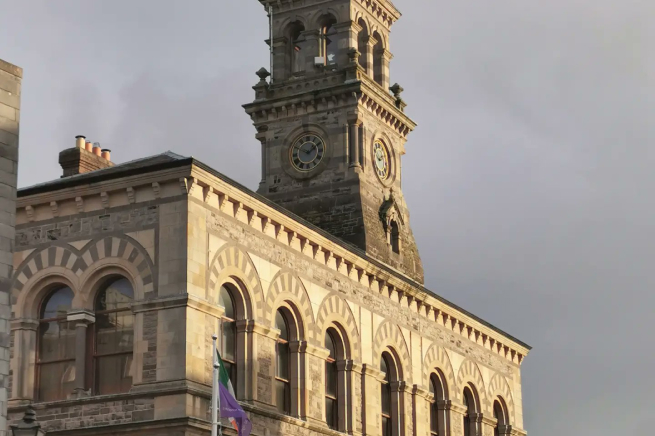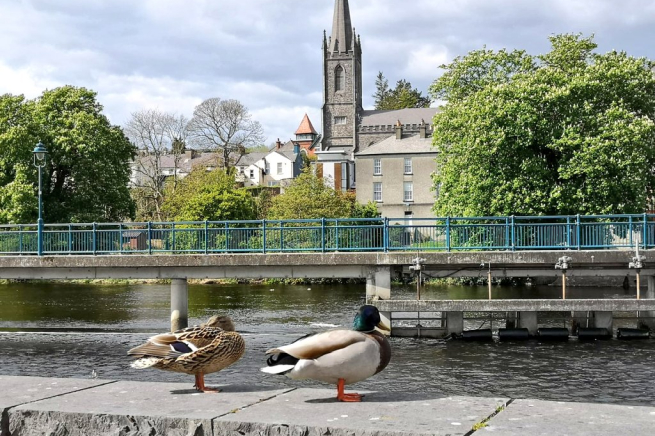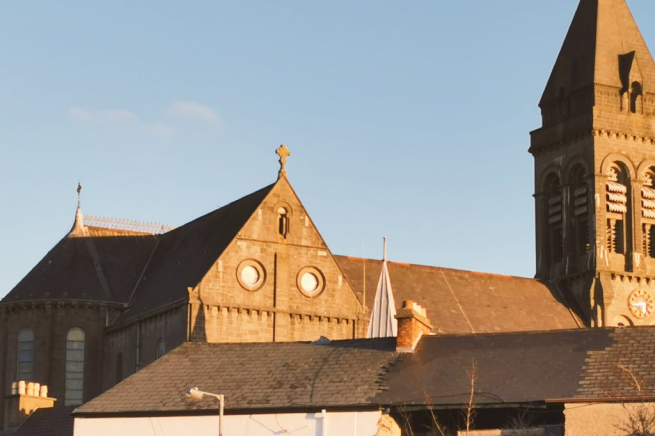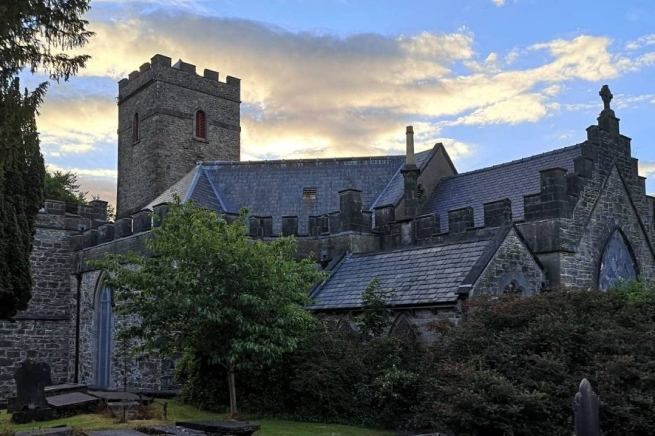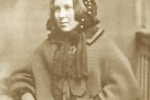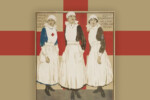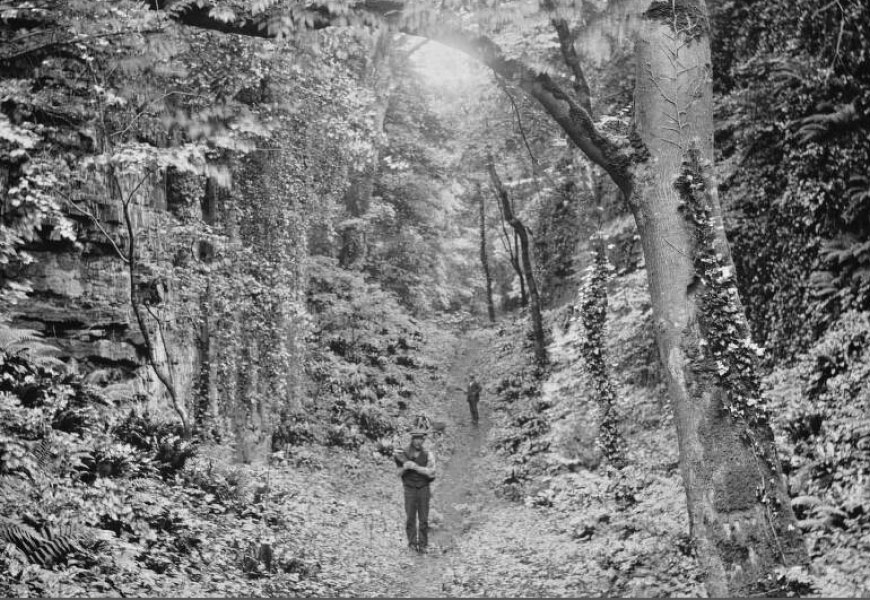
A Visit To The Glen In The Nineteenth Century
I first heard of Asenath Nicholson’s travel account during my college course in Heritage and Folklore. I was writing an assignment on visitors observations of Ireland.
Nicholson’s travels took her to Sligo in 1844. She was an American teacher, Quaker, vegetarian and philanthropist, who came to Ireland to preach the bible. She later returned to Ireland to work as a relief worker during the Famine.
Below is an excerpt from her account on her visit to Sligo, where she stayed only 24 hours but took in the local beauty spot the Glen.
The Glen is a narrow, long chasm on the south face of Knocknarea. This cleft in the mountain runs for about one kilometre or (3/4 quarters of a mile) and is 60 feet high. The gorge was likely formed after the last ice sheet melted and a block shaped slope fell away, around 12,000 years ago.
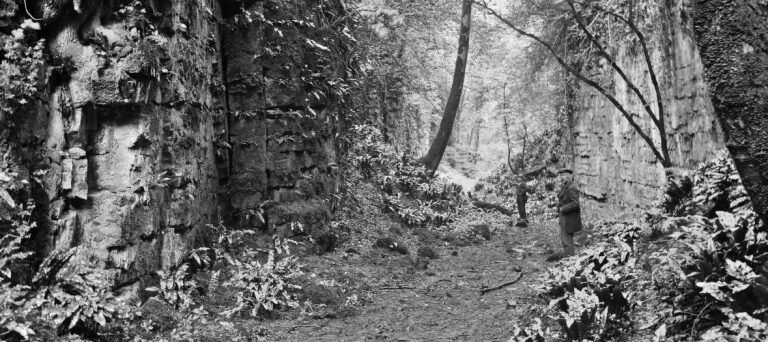
I stopped at a hotel in Sligo, stayed twenty-four hours, and saw almost the whole town. Took a morning walk three miles from my lodgings to the most beautiful glen I had met, in some particulars. The peasants were so desirous to talk with me on America, that I was three hours going three miles. An avenue, entered by a gate, leads to the cottage, where lives Mr. Nicholson, the proprietor; supposing it might be the breakfast hour, I sat down on a rustic seat, with the sea at my left and the glen at my right; and hearing the sound of a hammer, I entered the glen, and was accosted by a company of laborers breaking stones.
“Good morrow kindly, and ye’re takin’ the pleasantest walk in all Ireland. There’s not such a glen in all the kingdom; and sure ye didn’t come alone. Well! no harm ‘ill befal ye here, and the master has all free to everyone here”
“You’ve a good master, I hope; one who pays you well.”
“And that he does”
“What does he give?”
“Eightpence a day.”
“And you eat your own potatoes?”
“Yes, we aits our own potatoes, when we git enough of that same.”
I find in all Ireland the laboring classes, when I first speak to them, are ever praising their master. Just as in America, although the slaves may be often under the lash or in the stocks, yet to a stranger they durst not speak out, lest some “bird of the air should tell the matter;” so the peasantry of Ireland are in such suffering, that lest they should lose the sixpence or eightpence they occasionally get while employed, they will make a imperious landlord an angel to a stranger.
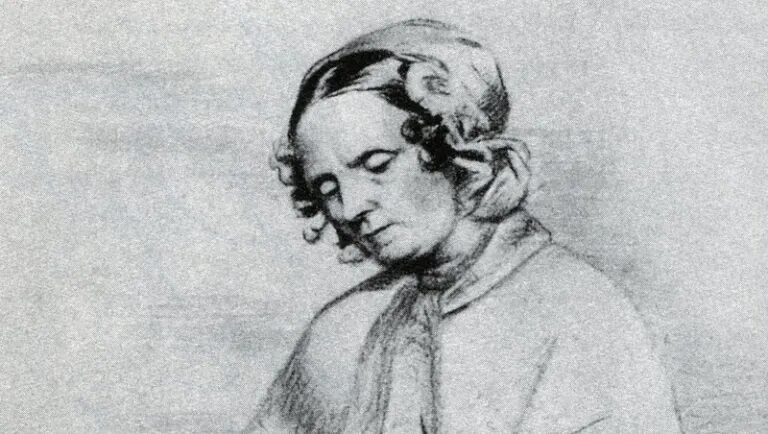
“Will ye walk through the glen, ma’am?” A road of comfortable width, richly bordered with wild flowers for three-quarters of a mile from the cottage, opens to the eye a rare treat of wonder. A wall of stone rising above the head, upon each side, as smooth as if sawed, and appearing as if once united, overhung with rich foliage, especially the ivy, which in rich fantastical testoons is hanging and twining in every part; and upon one side a part of the wall seems set aside for more favored ornament, having a curtain of ivy, knotted at the top in the centre, as if over a window, then running on either hand a distance of three yards, it falls gracefully down upon the wall, gradually coming to a point as if trimmed with shears. Between these graceful hangings the wall is entirely smooth, and water is continually percolating down its surface, giving a monotonous murmur in the stillness of the glen.
As I gazed, supposing the skill of the gardener had arranged this unparalleled ivy curtain, and clustered these knots upon the top, which were three in number, a peasant approached, “Good morrow kindly, ma’am; and did ye come far in the glen?”
I answered, “I am fixed to this spot. The gardener must possess exquisite skill to have fitted upon a wall such drapery as this!”
“The hand of the mighty God, ma’am. Nothin’ else that planted it there – no gardener has ever touched a hap’orth, ma’am, not a ha’porth.” “And what a mighty God must the maker of all this be!” What will become of you and me, sir, when these rocks shall be melted, and these mountains around us flee away?”
“Ah” that’s true for ye, ma’am, I’ve often haid this world’s to be burnt some day or the other. That’s true, God help us.” I was left alone, fixed in admiration for a time; then walked on till a gate and wall told me the glen was terminated. Returned, and took a second view of the enchanted spot.
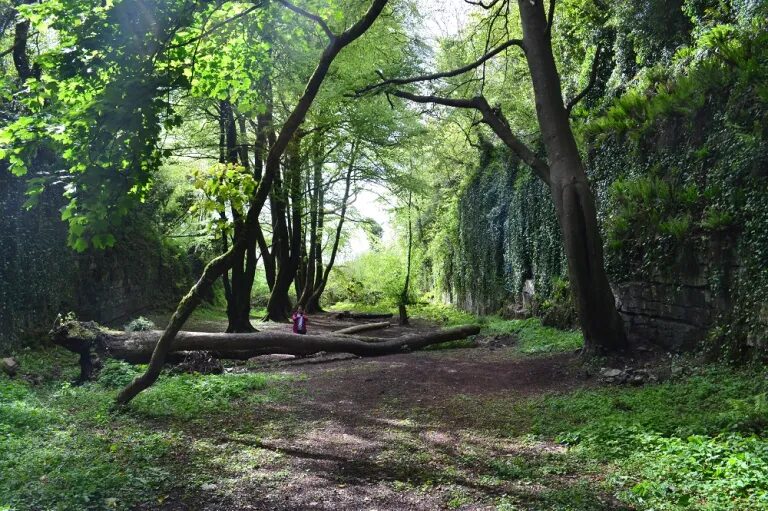
Reaching the cottage, I was met and welcomed by a man grown grey, and a cripple. But a young wife, just out of her teens, pleasantly invited me into the her fairy parlor and ante-room, and then said
“You will have some breakfast – the long walk must have given you an appetite.”
Brown bread and milk were placed before me, and while partaking it, she told me that three weeks ago, she had buried the best of fathers, at the advanced age of ninety; but his intellectual faculties brightened as his body decayed, especially his religious view; that his hospitality, for which he had ever been celebrated, was manifested at the last dying moment. A friend had entered to see him die. He beckoned his daughter to the bed, and inquired,
“What is preparing for dinner? This kind friend has come in to see me die, and something nice must be placed before him.”
These were his last words. His mantle had fallen upon his daughter. The law of kindness was on her tongue.
On my way to town, the peasants so detained me by inquiring about America, and what I thought of Ireland, that I had to make much haste on reaching the hotel, to be in time for the boat at three. I regretted leaving Sligo so soon. Such ready access to all classes was not usual, and I should have been much gratified by availing myself profitably of it. The beautiful and novel Bay of Sligo made me forget all else. Nothing but the Blackwater could equal it, and that could not boast such picturesque mountains. Here are mountains of rock, standing out in a circular shape, with the appearance of pillars, as if hewn by an architect; others, like a box, with a cover shut over it, and the edges of this cover plaited. This singular appearance of rock and mountain continued for several miles; while the little islands in the river, the green meadows, and tasteful demesnes upon the border, made an indescribable treat as the sun was setting.
As a side note, on researching Mr Nicholson’s Glen cottage, I came across an article for the Board of Guardians workhouse meeting. A servant who had worked at Mr Nicholson’s Glen cottage for twenty-six years, a Sally McCormic was forced to enter the Sligo Workhouse in 1843 as she was now destitute.


